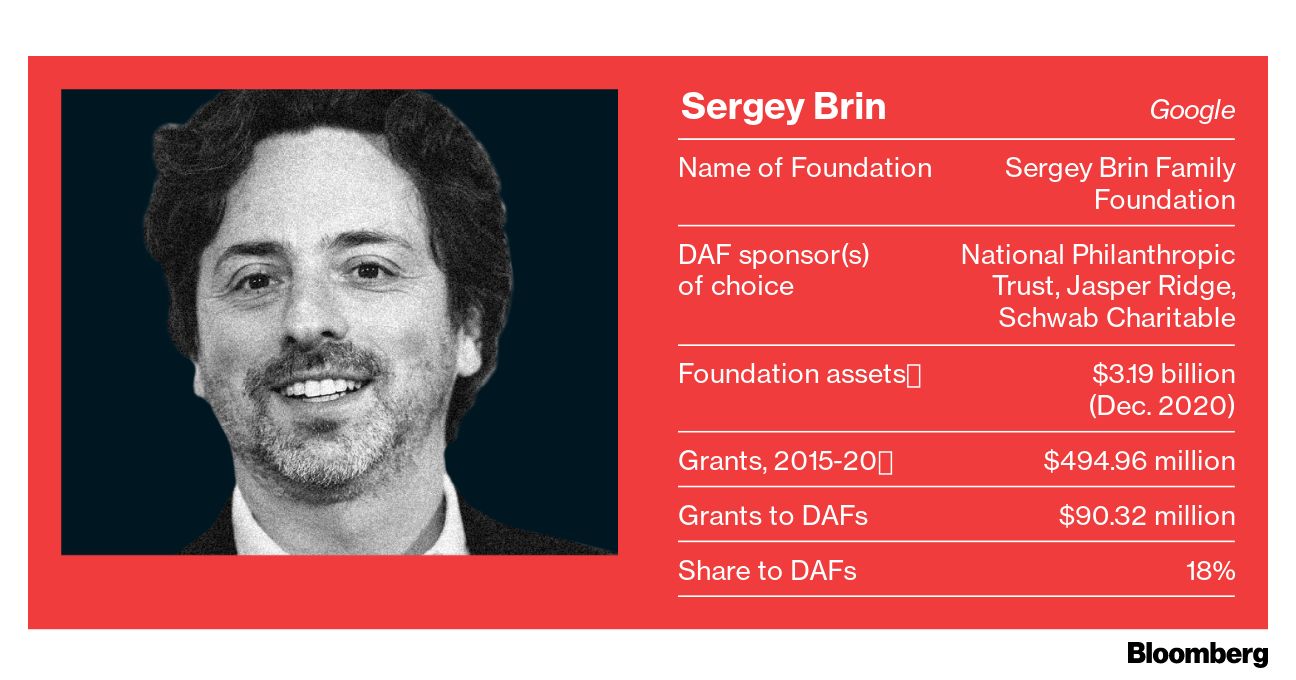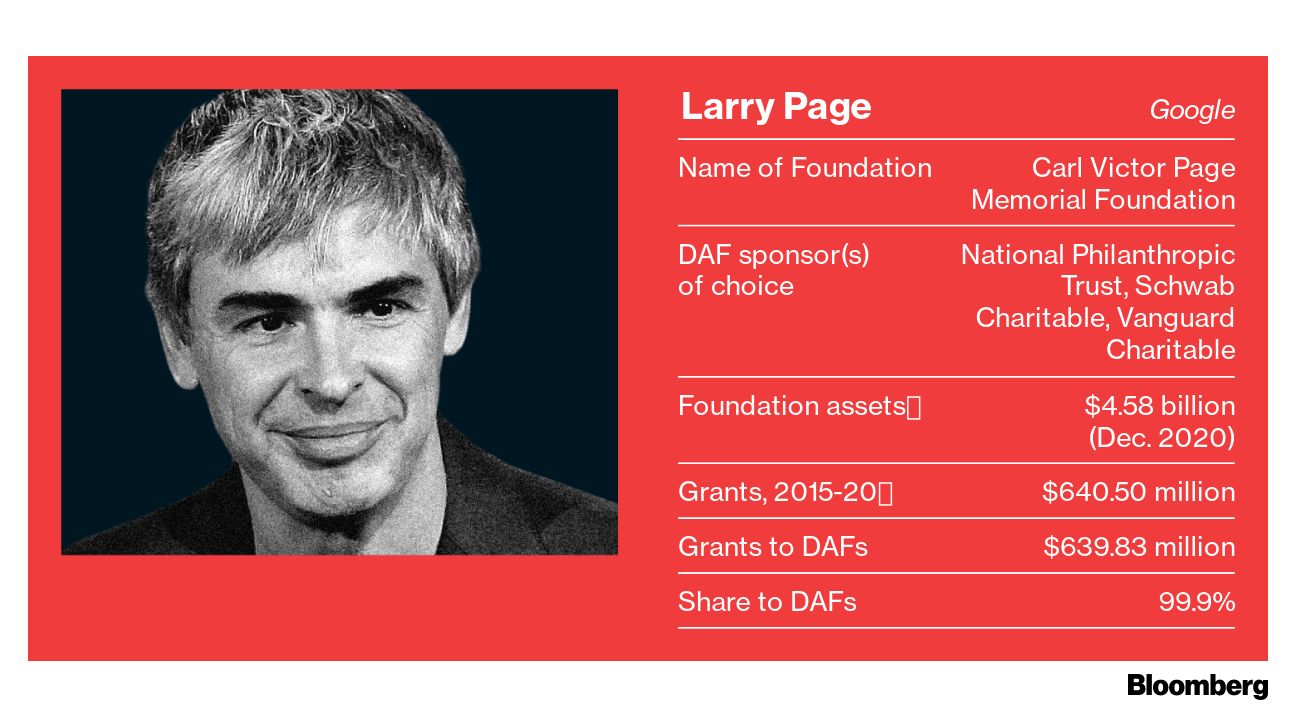As the wealth of the richest Americans ballooned in recent decades, they’ve lavished their private foundations with cash, stock, real estate, and other property, amassing more than $1.3 trillion for charitable causes, according to the Federal Reserve, and earning valuable tax write-offs. In return, they must move out their money or face penalties. Yet some foundations have trouble meeting the 5% payout rule, so they turn to DAFs.
Take Montana industrialist Dennis Washington. From 2015 to 2019, his billion-dollar foundation sent more than $66 million to Fidelity Charitable, the country’s largest sponsor of DAFs. Mike Halligan, executive director of the Dennis and Phyllis Washington Foundation, says he and his two-person team sometimes struggle to get the board to approve the annual amount the IRS requires, so they send it to the fund for future use. But he says he doesn’t know what actually happens to the money because, despite being the head of the foundation, it’s not in his “basic purview.” A spokesperson for the Washingtons declined to comment.

Even more striking is the Zoom Foundation, which hedge fund manager Stephen Mandel established. From July 2014 to June 2020 it sent $336 million, more than 99% of its donations, to Fidelity Charitable, slightly exceeding the amount it was required to distribute in those years. Zoom’s website says it funds “innovative change efforts that have high potential for sustainable impact, particularly in the areas of education, the environment, and democracy,” yet it lists no grant recipients. A spokesperson for Mandel declined to comment.
Hedge fund executives stand out as repeat users of the loophole. At least three foundations tied to insiders at Renaissance Technologies LLC, a hedge fund on Long Island, sent almost all their grants to DAFs. The largest foundation, with almost a half-billion dollars in assets, is CEO Peter Brown’s Quetzal Trust. It transferred almost $112 million to Fidelity Charitable from 2015 to 2020, according to tax forms reviewed by Bloomberg. Brown declined to comment.

His co-CEO at Renaissance until 2018, Robert Mercer, has also leaned on DAFs. With his daughters he oversees the Mercer Family Foundation, which had long given mostly to working nonprofits. Since 2018 it’s been writing its biggest checks to Donors Trust Inc., which offers donor-advised accounts and bills itself as “the community foundation for liberty.”
The shift in giving coincided with a burst of negative attention. Mercer and his daughter Rebekah were prominent Republican donors who helped elect Donald Trump president in 2016. Two years later, Rebekah penned an opinion piece in the Wall Street Journal saying she’s “been the subject of intense speculation and public scrutiny, in large part because of the philanthropic investments of the Mercer Family Foundation.” Giving to Donors Trust accounted for $28.8 million, or 87%, of the foundation’s grants from 2018 to 2020, the last year of available data. That compares with 8% in the prior two years.
Ray Madoff, a Boston College Law School professor who studies philanthropic policy and taxes, says these kinds of examples reflect an erosion of norms. “As the practice becomes more common, the more OK it feels to others,” she says. “It’s like driving above the speed limit. People don’t feel bad about it, so long as they are part of a crowd.”
In 1969, Congress tried to stamp out the hoarding of charitable money in foundations by imposing the 5% payout rule. At the time, foundations were marketed to the wealthy as a tax dodge, a way to hold on to dynastic wealth while giving little to charity. Conservatives, in particular, objected to foundations’ political involvement and the lack of transparency over where money went. They were outraged by the Ford Foundation’s funding of liberal causes, including civil rights groups and a voter registration drive that helped elect Cleveland’s first Black mayor. “There was concern that private wealth was almost this secret government running the country,” says Jon Pratt, senior research fellow at the Minnesota Council of Nonprofits.








